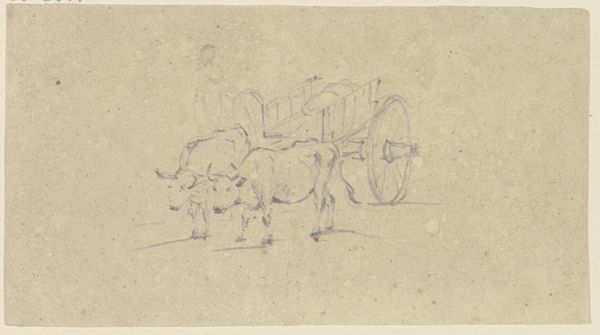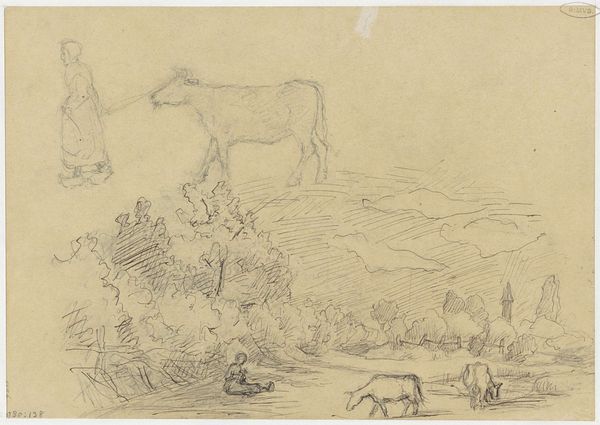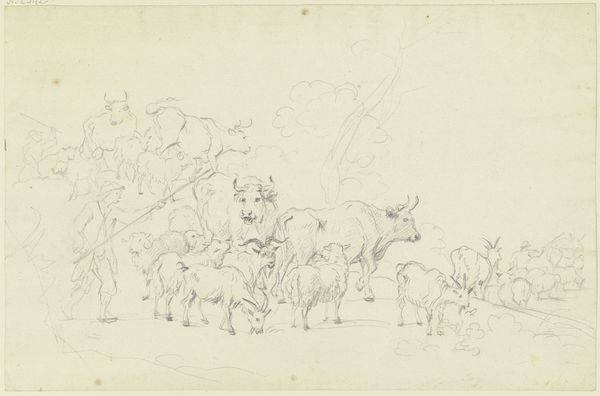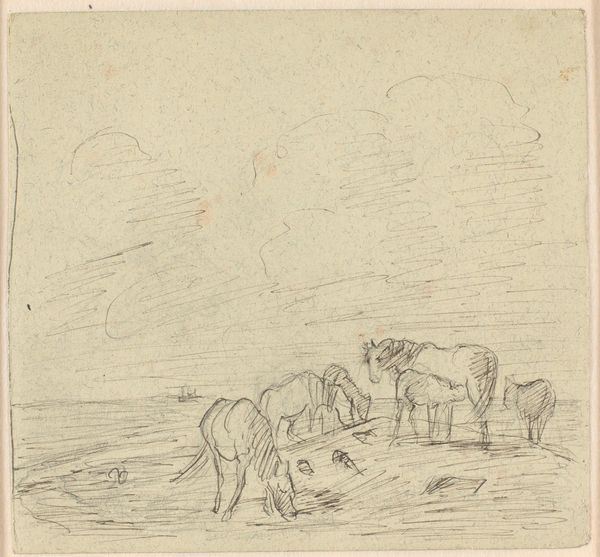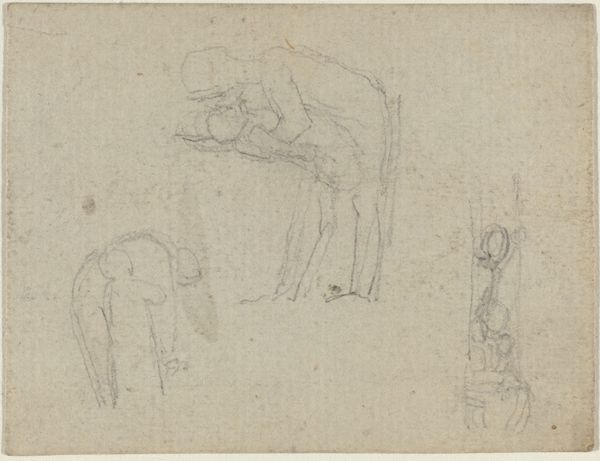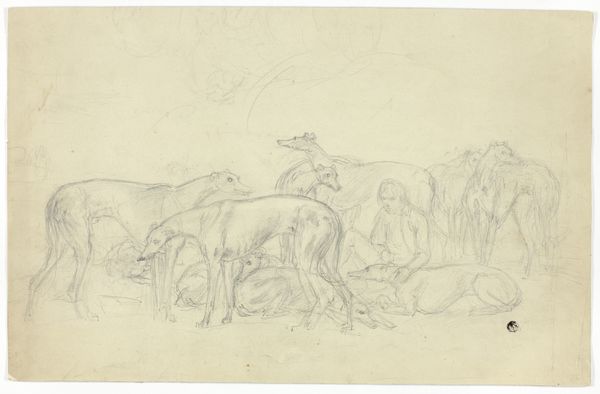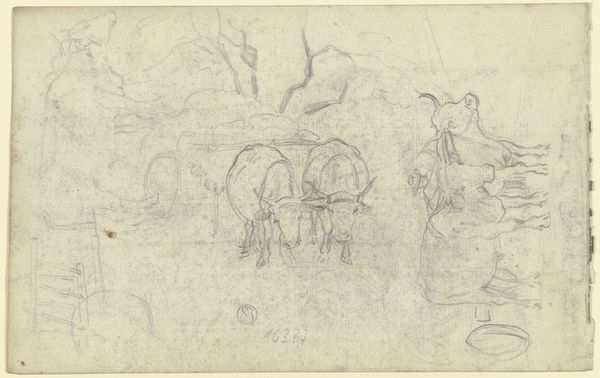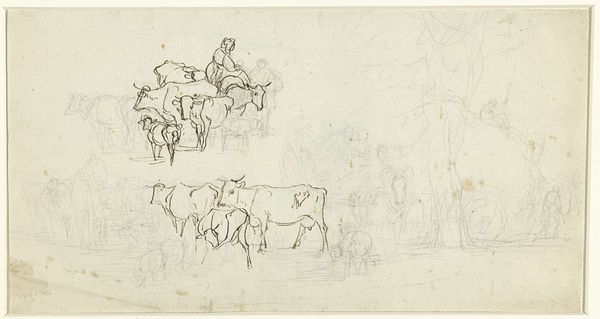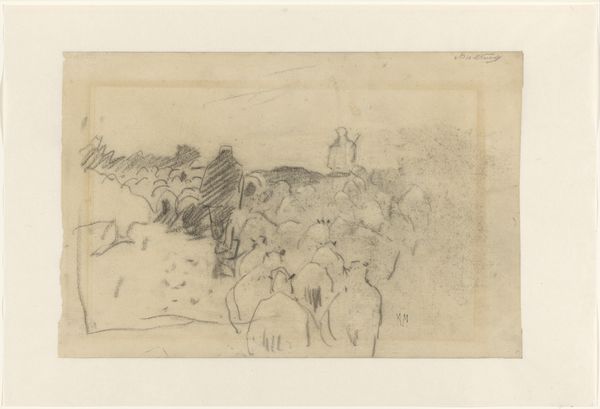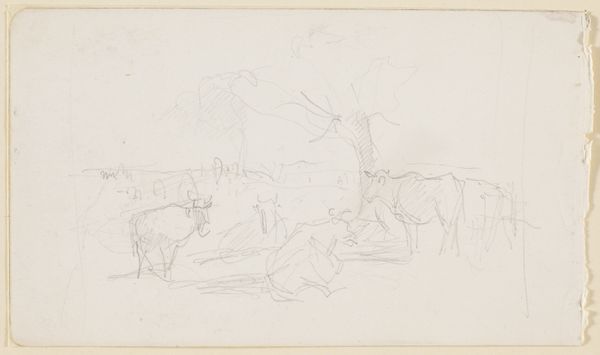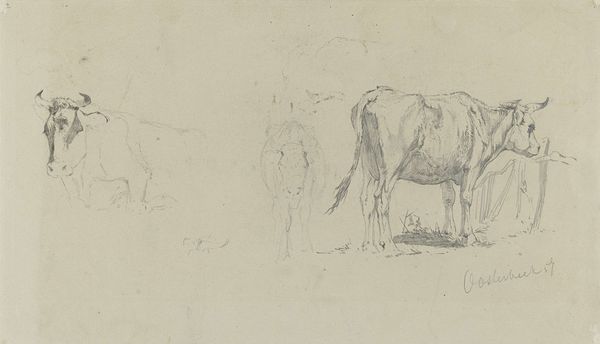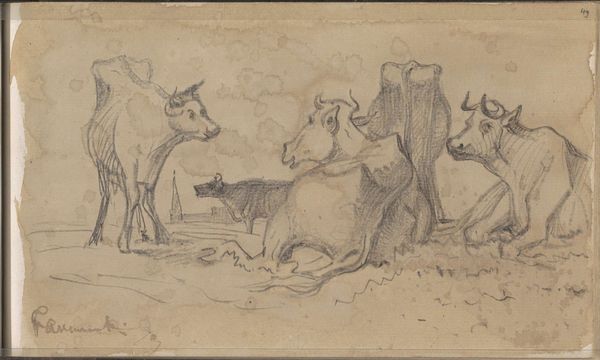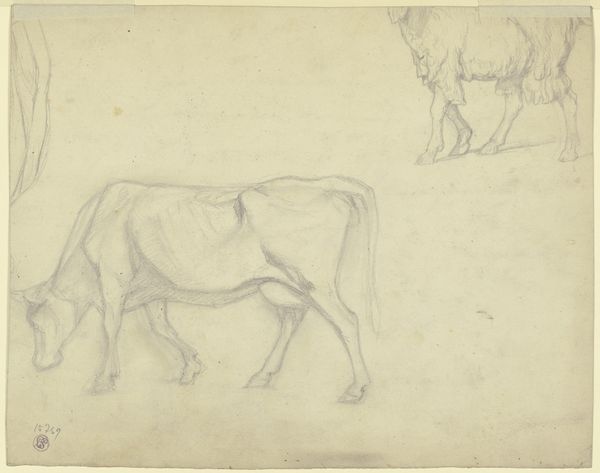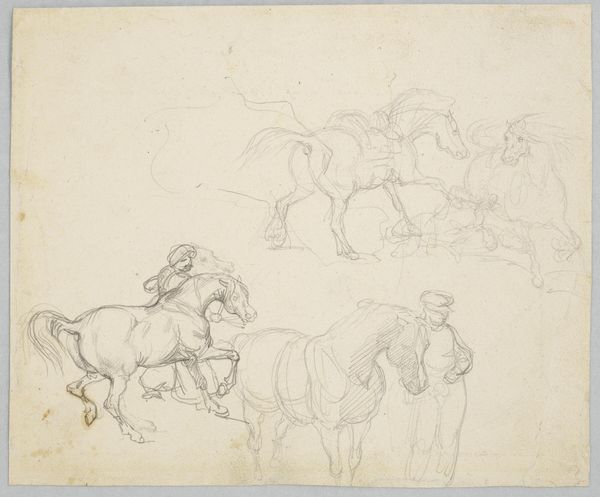
Cattle (recto); The Charlatan (verso) c. 1789 - 1843
0:00
0:00
drawing, print, paper, graphite
#
drawing
# print
#
landscape
#
paper
#
england
#
graphite
#
realism
Dimensions: 100 × 126 mm
Copyright: Public Domain
Curator: This graphite drawing on paper, titled "Cattle (recto); The Charlatan (verso)" is by William Henry Pyne, created sometime between 1789 and 1843. It is currently held in the collection of the Art Institute of Chicago. Editor: There's an immediacy to the marks that's so refreshing! The rough hatching describes both the volume and the texture of the beasts with remarkable economy. Curator: Exactly. Pyne's interest here likely lies in capturing the essence of rural English life. Cattle were of huge economic importance to English society and agriculture at the time. Think about the burgeoning market towns, the role of livestock in social wealth... Editor: But is this just reportage? I find something more compelling in the repetition of form. Look how the heads are grouped, how the curves of the horns echo one another. Pyne’s managed to abstract the image simply through compositional strategies. Curator: That's valid, although it also relates to wider art market developments. Picturesque ideals heavily influenced artists’ choices of subject matter and technique; rural scenes offered a nostalgic connection to traditional values. Pyne actually wrote on landscape drawing techniques so his approach was part of this. Editor: Note the interesting spatial ambiguity created by the minimal background. It serves to push the animals forward, amplifying their presence on the page, which really demonstrates command of visual language. Curator: Perhaps that compositional clarity enhanced its value in a print shop. The presence of "The Charlatan" on the reverse of this drawing makes one think this work had utilitarian intentions; its value lay in the print that could be made from it. Editor: Both readings serve to elevate this humble sketch into a thoughtful piece. I am captivated by the raw, unpolished beauty. Curator: Understanding the dual roles of art objects and artistic practices adds to this beauty. I’m glad we could explore it.
Comments
No comments
Be the first to comment and join the conversation on the ultimate creative platform.
